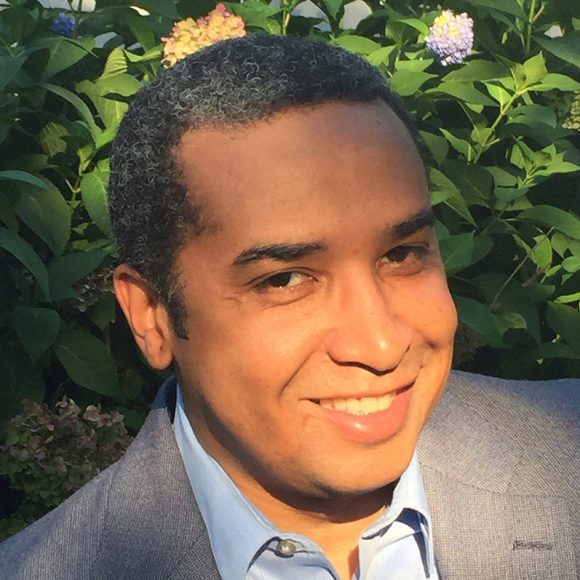I was buying bagels for my lunch, and on my ride to the deli I started listening to an NPR interview of Terry Gross speaking with writer Jerald Walker, who Gross described incessantly as having grown up on Chicago’s Southside.
Well, so did I, so I was drawn into Walker’s recollections of moving into a White neighborhood which quickly changed to all Black in the 1960s. It might well have been very close to where I grew up a few years earlier on Euclid Avenue. Michelle Obama grew up on Euclid also, 15 to 20 years after me.
Walker showed promise as a writer and eventually applied to the acclaimed Iowa Writers’ Workshop at the University of Iowa. He was one of a tiny group of applicants to be accepted. In the interview, he talked about writing an essay about his youth in Chicago, about being pulled into petty crime by his brother, watching his sister become a heroin addict, and seeing another brother shot. He emphasized the crushing horror of his tough life in Chicago, and being raised by two blind parents.
Walker was proud of the essay for its bleakness and tough truth.

His teacher, James Alan McPherson, a Black author himself, tore the piece apart. Walker was furious. After class, he ran after the professor and demanded a one-on-one meeting. MacPherson told Walker that he hated the essay. He told Walker that yes, it may be true and factual, but it was still a stereotype of Black oppression and young Jerald Walker was not a victim. He was an elite writer, one of the 3% of applicants who applied to the Iowa Writers’ Workshop to be admitted. McPherson asked Walker to think about who he was, and Walker said he thought deeply about who he was for a year, and it changed him as a person and as a writer.
****
For many years I have been trying to deal with the Black struggle in America. I live in an area which is now predominantly Black. Many of my neighbors are African-American, but I can’t say I’m close friends with them. The Black Lives Matter slogan and movement troubles me a lot because I think it emphasizes Black victimization, which I see as a huge negative, particularly for young people. It promotes anger and payback.
The “1619 Project,” from New York Times, which blames White people for almost all of the ills of Black America even today, is a huge negative for the improvement of the lives of Black Americans. On the sports front, I think the NBA showed poor judgement in allowing Black players to decorate their uniforms with Black Power slogans. I am not pleased by the societal about face regarding Colin Kaepernick, who grew up as an adopted son in a White family. He has now become a symbol of Black victimization, even though he had a successful career as an NFL quarterback and is now collecting big royalty checks from Nike for clothing naming rights.
Jerald Walker’s writing career has led him to Emerson College and a self-described “cushy” life in Boston’s 96% White suburbs. In the Gross interview, he talked about cringing at the thought of taking his 18- and 20-year-old sons back to his old neighborhood on the Southside of Chicago for his mother’s 80th birthday, after repeatedly telling them the horror stories of his youth.
I really think America is a victim of the Black victimization narrative, even though I know it has some truth to it. Will we someday become more nuanced and accepting of both the opportunity and obstacles?
I hope to see it–at least in the south suburbs of Chicago, where I live and work.
Question: Who won the election?

5 Comments
You are exactly right, Lloyd. I recently finished a book, “White Guilt” by Shelby Steele, written by another black South Chicago scholar that explains this exactly. I gave several copies away and my pastor was impacted so much he invited Shelby Steele for an interview on his podcast.
https://podcasts.apple.com/us/podcast/reaching-for-real-life-with-sean-azzaro/id1309689976?i=1000497025593
Of note, Shelby also now has a documentary film, “What Killed Michael Brown” on Amazon, after winning a fight with Amazon taking his film down for it’s message.
Good piece Lloyd… food for thought like this is always a healthy meal.
Lloyd,
Attached is a 2018 article out of The Atlantic that succinctly describes the economic stagnation of the southside of Chicago. I can only see the equality divide becoming larger due to the onerous tax climate of IL. Those that have the ability to flee to tax friendly states will do so, leaving the remaining IL residents to bear the brunt of increasing taxes to try to fill pension and budgetary gaps.
https://www.theatlantic.com/business/archive/2018/03/chicago-segregation-poverty/556649/
Thanks Lloyd,
Please keep writing about things that matter and including people who many of us may not have heard of.
Keith
Lloyd,
Great piece. The issue is real, and complex. Blacks are impacted both from overt (and often unintended) white discrimination, and also from self-inflicted victimization.
We all need to acknowledge the problem. But acknowledgement is just a first step. It doesn’t exonerate white people from changing ingrained behavior, not prejudging, and accepting others as human beings, and even friends. That takes some work, but it may possibly help one develop some new friendships.
Jerry